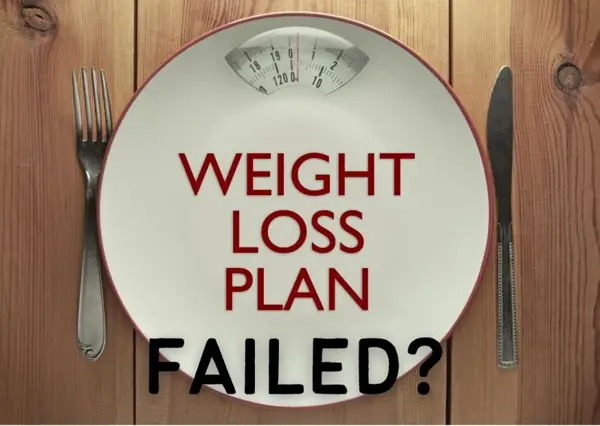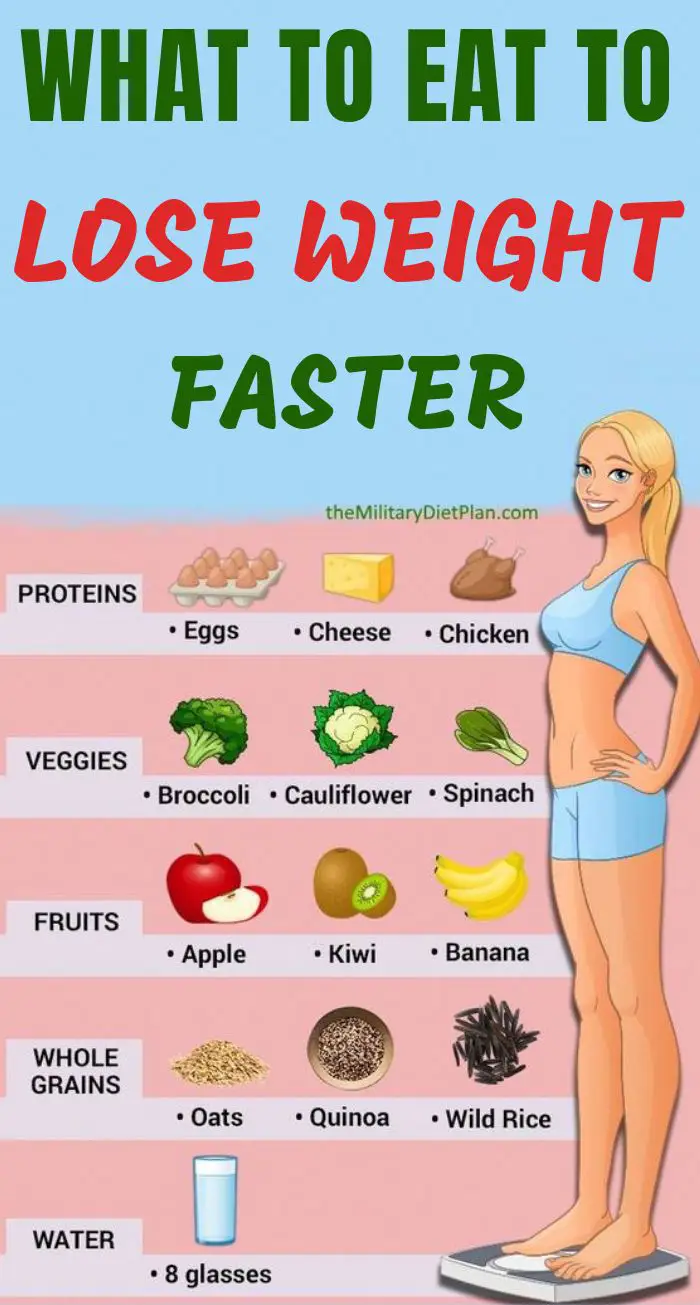The journey towards achieving a healthy weight is important for overall well-being, but it's essential to understand what constitutes an unhealthy rate of weight loss. In this article, we delve into the dangers of shedding pounds too quickly, and why it's crucial to adopt a gradual and sustainable approach to weight loss. By gaining insights into this topic, you can prioritize your health while achieving your weight management goals.
Table of Contents
Introduction
Gain an understanding of the purpose and scope of this article.
Understanding Unhealthy Weight Loss
Explore the concept of unhealthy weight loss and the associated risks.
Losing weight can be a challenging and complex process. While aiming for a healthier weight is generally beneficial, it is essential to approach weight loss in a healthy and sustainable manner. Losing weight too quickly or at an unhealthy rate can have detrimental effects on both your physical and mental well-being.
The Dangers of Unhealthy Weight Loss
Unhealthy weight loss refers to losing weight at a rate that is considered excessive or potentially harmful to your body. This typically involves extreme dieting, severe caloric restriction, or engaging in dangerous weight loss practices.
Rapid weight loss may seem appealing initially, but it often leads to a range of negative consequences, including:
- Loss of muscle mass: Quick weight loss primarily involves shedding water weight and muscle rather than fat. Losing muscle mass can weaken your body, impact metabolism, and increase the likelihood of regaining weight.
- Nutrient deficiencies: Severe caloric restriction can lead to inadequate intake of essential nutrients, vitamins, and minerals, causing nutritional imbalances and potential health issues.
- Decreased energy levels: Drastic reductions in calorie intake can leave you feeling tired, lethargic, and unable to perform daily activities efficiently.
- Impaired immune function: Insufficient nutrients and extreme dieting weaken the immune system, making you more susceptible to illnesses and infections.
- Poor mental health: Unhealthy weight loss practices can trigger feelings of anxiety, depression, obsession with body image, and even the development of eating disorders.
- Rebound weight gain: Losing weight too quickly often results in rapid weight regain once normal eating patterns resume. This cyclical pattern of weight loss and gain, known as yo-yo dieting, is detrimental to long-term health.
What is an Unhealthy Rate to Lose Weight?
Although everyone's weight loss journey is unique, healthcare professionals generally recommend losing weight at a gradual and sustainable rate. Losing 1-2 pounds (0.5-1 kg) per week is considered a safe and healthy target.
If you're unsure about what constitutes a healthy rate of weight loss for you, it's always wise to consult a healthcare professional or registered dietitian. They can assess your specific needs, provide guidance, and help create a personalized plan that prioritizes your overall well-being.
Remember, adopting a balanced and long-term approach to weight loss ensures better results and reduces the risk of adverse health effects associated with unhealthy weight loss practices.

Effects of Rapid Weight Loss on the Body
Discover the negative impact of rapid weight loss on various bodily systems.
Losing weight can be a goal for many individuals, but it is important to approach weight loss in a healthy manner. Rapid weight loss, especially when done at an unhealthy rate, can have several negative effects on the body.
1. Muscle Loss
Rapid weight loss often leads to muscle loss. When the body is not receiving enough calories and nutrients, it turns to breaking down muscle tissue for energy. This can result in a loss of strength and overall decreased muscle mass.
2. Nutritional Deficiencies
Drastic and rapid weight loss diets often focus on severe calorie restrictions and eliminating entire food groups. This can lead to nutritional deficiencies, as the body may not receive all the essential vitamins, minerals, and macronutrients it needs for proper functioning. This can negatively impact overall health and increase the risk of developing various health problems.
3. Slowed Metabolism
When the body experiences rapid weight loss, it tries to conserve energy by slowing down the metabolism. This means that the body burns fewer calories at rest, making it harder to continue losing weight and maintain the achieved weight loss in the long term.
4. Gallstones
Rapid weight loss, especially when accompanied by very low-calorie diets, increases the risk of developing gallstones. Gallstones are hard deposits that form in the gallbladder and can cause severe pain and complications if left untreated.
5. Dehydration
Extreme weight loss methods often result in water loss, leading to dehydration. Dehydration can cause various health problems, such as dizziness, fatigue, electrolyte imbalances, and even kidney issues in severe cases.
It is essential to approach weight loss in a balanced and gradual manner, ensuring that the body receives adequate nutrition and support throughout the process. Consulting a healthcare professional or a registered dietitian can help create a safe and effective weight loss plan tailored to individual needs.

Signs of Unhealthy Weight Loss
Identify the warning signs that indicate unhealthy weight loss.
Losing weight can be a healthy and positive step towards improving one's overall well-being. However, losing weight at an unhealthy rate or following unhealthy methods can have detrimental effects on both physical and mental health. Here are some signs that indicate unhealthy weight loss:
- Rapid Weight Loss: Losing a significant amount of weight in a short span of time, typically more than 1-2 pounds per week, can be a sign of unhealthy weight loss. This is usually achieved through extreme dieting or restrictive eating habits.
- Extreme Calorie Restriction: Severely limiting calorie intake or consuming very low-calorie diets can lead to nutrient deficiencies, metabolic disruptions, and negative impacts on the body's functions.
- Muscle Wasting: Unhealthy weight loss often leads to loss of muscle mass instead of fat. This can be identified by a decrease in strength, saggy or loose skin, and a frail physical appearance.
- Constant Fatigue and Weakness: Losing weight too quickly can result in feelings of constant fatigue and weakness due to the body not getting enough energy and nutrients to function properly.
- Mental Health Issues: Unhealthy weight loss practices can contribute to the development of eating disorders such as anorexia or bulimia. Obsession with body image, extreme anxiety surrounding food, and depression are common signs that indicate a negative impact on mental health.
To ensure a healthy weight loss journey, it is important to lose weight at a moderate and sustainable pace. Aim for a gradual weight loss of 1-2 pounds per week, which is considered a healthy rate. Additionally, focusing on balanced and nutritious eating habits, regular physical activity, and seeking professional advice from healthcare providers or nutritionists can greatly contribute to achieving a healthy weight loss goal.

Balanced Approaches to Weight Loss
Learn about sustainable strategies for achieving a healthy rate of weight loss.
Losing weight at an unhealthy rate can have negative consequences on your overall well-being. It's essential to adopt a balanced approach to weight loss to ensure long-term success and maintain good health.
Understanding Unhealthy Weight Loss Rates
Losing weight too quickly, typically more than 1-2 pounds (0.5-1 kg) per week, is generally considered unhealthy. Rapid weight loss often leads to muscle loss, nutritional deficiencies, and metabolic imbalances, making it harder to sustain weight loss in the future.
The Importance of a Balanced Approach
By choosing a balanced approach to weight loss, you prioritize sustainable changes in your lifestyle, eating habits, and physical activity. This approach not only aids in weight loss but also improves your overall health and reduces the risk of developing health issues.
Key Principles for Balanced Weight Loss
- Calorie deficit: Gradually reducing calorie intake through a well-balanced diet ensures sustainable weight loss without compromising essential nutrients.
- Regular physical activity: Combining a healthy eating plan with regular exercise helps burn calories, build muscle, and improve overall fitness.
- Setting realistic goals: Aim for steady weight loss rather than quick fixes. Focus on losing 1-2 pounds (0.5-1 kg) per week to allow your body to adjust gradually.
- Seeking professional guidance: Consulting a registered dietitian or healthcare provider can provide personalized guidance tailored to your specific needs.
- Adopting healthy habits: Prioritize behaviors like portion control, mindful eating, stress management, and quality sleep to support long-term weight management.
It is crucial to approach weight loss with a focus on balance to avoid unhealthy rates. By gradually making sustainable changes to your eating habits, incorporating regular exercise, and seeking professional guidance, you can achieve a healthy weight loss while improving overall well-being.

Seeking Professional Guidance
Understand the importance of consulting professionals when embarking on a weight loss journey.
When it comes to losing weight, it's important to approach it in a healthy and sustainable manner. Losing weight too quickly can have negative consequences on your health and overall well-being. This is why seeking professional guidance is essential.
A professional, such as a registered dietitian or a healthcare provider, can assess your individual circumstances and help determine what rate of weight loss is appropriate for you. They consider factors such as your current weight, body composition, overall health, and any underlying medical conditions you may have.
An unhealthy rate of weight loss typically involves losing more than 1-2 pounds per week. Rapid weight loss can lead to muscle loss, nutritional deficiencies, gallstones, and a slower metabolism. It can also result in feeling fatigued, irritable, and having trouble concentrating.
By consulting a professional, you can ensure that your weight loss goals are achieved in a safe and sustainable manner. They can help you create a personalized plan that includes a balanced diet, regular physical activity, and appropriate behavior modifications.
Remember, losing weight should not be a race, but rather a journey towards a healthier lifestyle. Seeking professional guidance ensures that you prioritize your well-being and make informed choices that will benefit you in the long run.

Maintaining a Healthy Weight
Discover tips and techniques for maintaining a healthy weight once it is achieved.
Losing weight at an unhealthy rate can have detrimental effects on your overall health and well-being. Here are a few reasons why maintaining a healthy weight is crucial:
- Nutritional deficiencies: Crash diets or extreme weight loss programs often restrict essential nutrients and vitamins, which can lead to deficiencies and compromise your immune system.
- Muscle loss: Rapid weight loss can cause your body to break down muscle tissue instead of burning fat, leading to a decrease in muscle mass and strength.
- Slower metabolism: Drastically reducing calorie intake can slow down your metabolism, making it harder to lose weight in the long run.
- Dehydration: Some unhealthy weight loss methods involve excessive fluid loss, leading to dehydration and potentially serious health issues.
- Increased risk of regaining weight: Quick fixes rarely result in sustainable weight loss. Losing weight too fast often leads to weight regain once normal eating habits are resumed.
- Impaired mental health: Extreme diets and unhealthy weight loss practices can negatively impact your mood, self-esteem, and body image, potentially leading to disordered eating patterns or even eating disorders.
Instead of resorting to unhealthy weight loss methods, focus on sustainable strategies like:
- Gradual and balanced calorie reduction
- Incorporating regular exercise and physical activity
- Eating a varied and nutrient-rich diet
- Getting adequate sleep and managing stress levels
- Seeking guidance from a healthcare professional or registered dietitian
Remember, losing weight in a healthy manner takes time and patience. It is essential to prioritize your well-being and adopt lifestyle changes that you can sustain in the long term.

Key Takeaways
- An unhealthy rate of weight loss poses various risks to your health.
- Physical, mental, and nutritional well-being can be adversely affected by rapid weight loss.
- Signs of unhealthy weight loss include extreme fatigue, dizziness, and muscle loss, among others.
- Gradual weight loss through balanced approaches leads to sustainable and long-term results.
- Seeking professional guidance ensures a personalized and safe weight loss journey.
- Maintaining a healthy weight involves adopting healthy habits and sustainable lifestyle changes.
Frequently Asked Questions (FAQ)
Is losing weight rapidly more beneficial?
No, rapid weight loss is not more beneficial. It can lead to muscle loss, nutrient deficiencies, and other health complications.
What are the risks of losing weight too quickly?
Risks of losing weight too quickly include a slowed metabolism, gallstone formation, electrolyte imbalances, and inadequate nutrient intake.
Can you lose weight at a healthy rate without exercise?
Yes, you can lose weight at a healthy rate without exercise by focusing on calorie control and adopting a balanced diet. However, exercise offers numerous benefits for overall health.
How much weight loss per week is considered healthy?
A weight loss rate of 1-2 pounds per week is generally considered healthy and sustainable.
What if I have a significant amount of weight to lose?
If you have a significant amount of weight to lose, it's essential to consult a healthcare professional who can provide personalized guidance and support throughout your weight loss journey.



Recent Comments